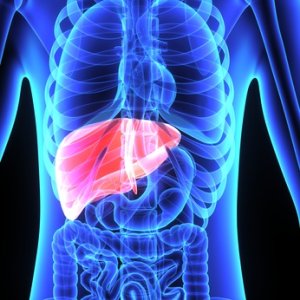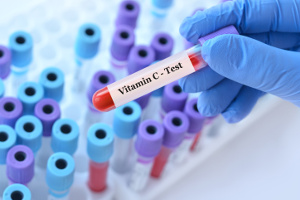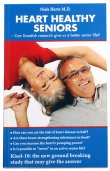Supplements of Q10 may help people with liver disease
 Researchers have found that sufferers of non-alcoholic fatty liver disease (NAFLD) can protect themselves by taking the vitamin-like substance coenzyme Q10.
Researchers have found that sufferers of non-alcoholic fatty liver disease (NAFLD) can protect themselves by taking the vitamin-like substance coenzyme Q10.
Non-alcoholic fatty liver disease is a chronic liver disorder that involves inflammation of the liver and may worsen through a four-stage progression that may eventually lead to cirrhosis and liver cancer. The condition, which is characterized by a build-up of fat in the liver cells and typically affects people who are diabetic or overweight. There is currently no medical treatment for NAFLD but science has found that the vitamin-like substance coenzyme Q10 may be able to improve the liver’s fat metabolism and reduce the inflammation.
Q10 for 12 weeks
A study of 41 people with diagnosed NAFLD were randomly assigned to receive either 100 mg of coenzyme Q10 daily or placebo capsules for a period of 12 weeks. Neither the researchers nor the participants knew who got what until the code was broken after the 12-week study period. Blood samples were taken from each patient before and after the intervention, so the researchers could determine levels of liver enzymes and inflammation markers.
Less inflammation
The study showed that supplementing with coenzyme Q10 resulted in a significant decrease in liver aminotransferase (aspartate aminotransferase), a biological marker of liver damage. Also significant reductions in other tell-tale signs of liver disorders and inflammation, including gamma-glutamyl transpeptidase (GGT), high-sensitive C-reactive protein (hs-CRP), and tumor necrosis factor alpha, were observed in those who received coenzyme Q10 supplements but not in the placebo group.
Although the study is limited in size it suggests that coenzyme Q10 taken at a daily dose of 100 mg daily may be useful for reducing systemic inflammation and improving several biochemical variables involved in NAFLD.
Source: Journal of the American College of Nutrition 2015, July 9:1-8
Search for more information...
- Created on .








 Most people are unaware of vitamin C’s key role in mental health and mood. According to a large population study that is published in Frontiers in Nutrition, having higher levels of vitamin C in the blood is linked to a lower risk of depression. The official dietary recommendations for vitamin C only focus on preventing the potentially lethal deficiency disease called scurvy, and things like stress, ageing, stimulant use, overweight, infections, and chronic illnesses can increase your need for the nutrient.
Most people are unaware of vitamin C’s key role in mental health and mood. According to a large population study that is published in Frontiers in Nutrition, having higher levels of vitamin C in the blood is linked to a lower risk of depression. The official dietary recommendations for vitamin C only focus on preventing the potentially lethal deficiency disease called scurvy, and things like stress, ageing, stimulant use, overweight, infections, and chronic illnesses can increase your need for the nutrient.


 "After about one week of taking the Q10 supplement I could feel a huge difference," says 23-year old Alan Piccini, who has been suffering from extreme fatigue and muscle aches ever since he was a child.
"After about one week of taking the Q10 supplement I could feel a huge difference," says 23-year old Alan Piccini, who has been suffering from extreme fatigue and muscle aches ever since he was a child. “Taking capsules with co-enzyme Q10 has freed me of the severe side effects of my cholesterol lowering medicine,” Mrs Franken explains.
“Taking capsules with co-enzyme Q10 has freed me of the severe side effects of my cholesterol lowering medicine,” Mrs Franken explains.